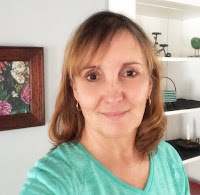A little story about chapbooks
New Inspiration for Bloggers
By Carolyn Howard-Johnson, multi award-winning author of
The Frugal Book Promoter
From Amazon’s New Buy Page for Series Only
Many of us who use blogs to promote think of them as diaries best kept cloistered under lock and key, as a path to writing a book one entry (chapter) at a time as Lisa Cron suggested in her book Wired for Story, or as something too new or techy to be bothered with. Some authors might spurn them because they are used so frequently for marketing which they would prefer to avoid altogether and others might still feel queasy when they succumb to marketing for the good of their book. I am going to tell you how to rethink blogs, re-invent them with something ancient and outdated, and generally make you love them.
When I was an instructor for UCLA’s renowned Writers’ Program the storyteller in me made me tell my students about chapbooks before I told them about the far-reaching value of blogs. I combined the tech and romance in my story. I knew my students—being writers—would respond to a good story, too. It’s the story of chapbooks and their creators, the peddlers, the people called “chapmen:”
“Once upon Elizabethan Times—some time after the advent of the Gutenberg Press when common folk were just learning to read—roving peddlers wandered from village to village selling a variety of needs to the populace and they were called chapmen. It came to pass—as it always does in old tales—that one enterprising (and creative) chapman began to give away small promotional booklets showcasing his products to those who came by his cart. His booklets were so effective he began including a poem he had written in them. Or a story. Or his drawings. Those booklets soon became treasured literary and artistic works from the poems inside to their hand-stitched spines and handmade covers. Soon his customers began talking about their chapman, perhaps seeing him differently than before.
“I suspect that occasionally our chapman offered an extra booklet to give to a friend. Our chapman was for his audience a welcome diversion in the villager’s lives as well as a more affluent chapman than most, so the books he gave away—unbeknownst to him—inspired other itinerants to emulate him and all the British Isles was calling these artistic sales tools “chapbooks.”
That’s why, dear authors, we use the word “chapbook” for small books of poetry today. But we can also use them—as he did—as a kind of viral marketing scheme, one that encourages interaction between the poet or storyteller and customer.
They can be artistic with handmade endpapers and silken bookmarks or simple booklets barely large enough to meet Amazon’s requirements for publication. They can be reasonably priced or cost lots of money and time. I plan to use one when the next book in my HowToDoItFrugally Series of books for writers is released in the new year. It will be the frugal kind (of course!) from Amazon’s KDP!
Chapbooks can be sold at online bookstores or given away for their promotion value at book signings and presentations. I might include tips from the new book, a special offer to those who buy extras as gifts, and even poems or story excerpts for the books I have planned for the whole of 2025.
It seems writing finds a way to adapt to new technologies so why not re-adapt chapbooks to your needs. Without realizing it, the world of technology brought us a newbie chapbook with blogs. The basic concept is the same, but they let us reach farther and do it faster than the chapman could. So the question is, what will you use? Blog? Chapbook? Or both?
MORE ABOUT TODAY’S CONTRIBUTOR
Carolyn Howard-Johnson is a novelist, poet, and the author of the multi award-winning HowToDoItFrugally series of books for writers (http://www.howtodoitfrugally.com). The flagship book in that series is now available in its 3rd Edition from Modern History Press. Her #thefrugalbookpromotertips feature Amazon’s new buy pages dedicated to book series at no extra cost. If you write a series, find hers as an example at https://amazon.com/dp/B0BTXQL27T. She also has a series of poetry chapbooks cowritten with Magdalena Ball at https://www.amazon.com/dp/B0CFKMM9FN.
Carolyn also blogs writers’ resources at Writer’s Digest 101 Best Websites pick www.sharingwithwriters.blogspot.com and her www.sharingwithwriters.blogspot.com is a NO #bookbigotry site that aims to extend the exposure for reviews no matter the publish date or the press it is printed on. Find submission guidelines at https://tinyurl.com/SubmitReviewTNBR and other free opportunities by clicking on the round silver icons in the right column.

















